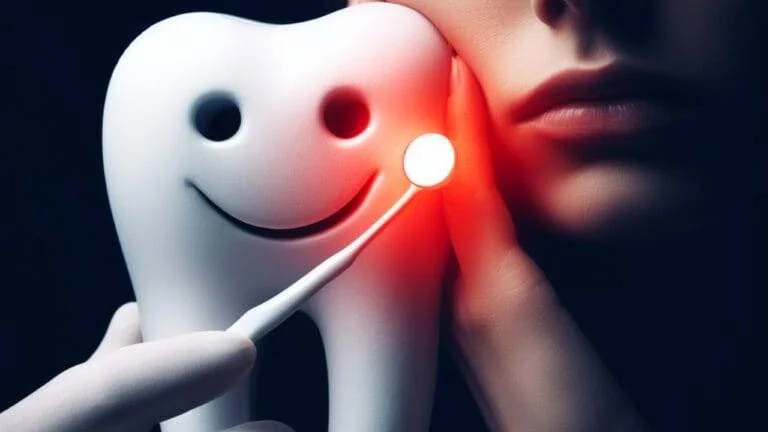The Spiritual Meaning Behind Heartburn: What Your Body is Trying to Tell You
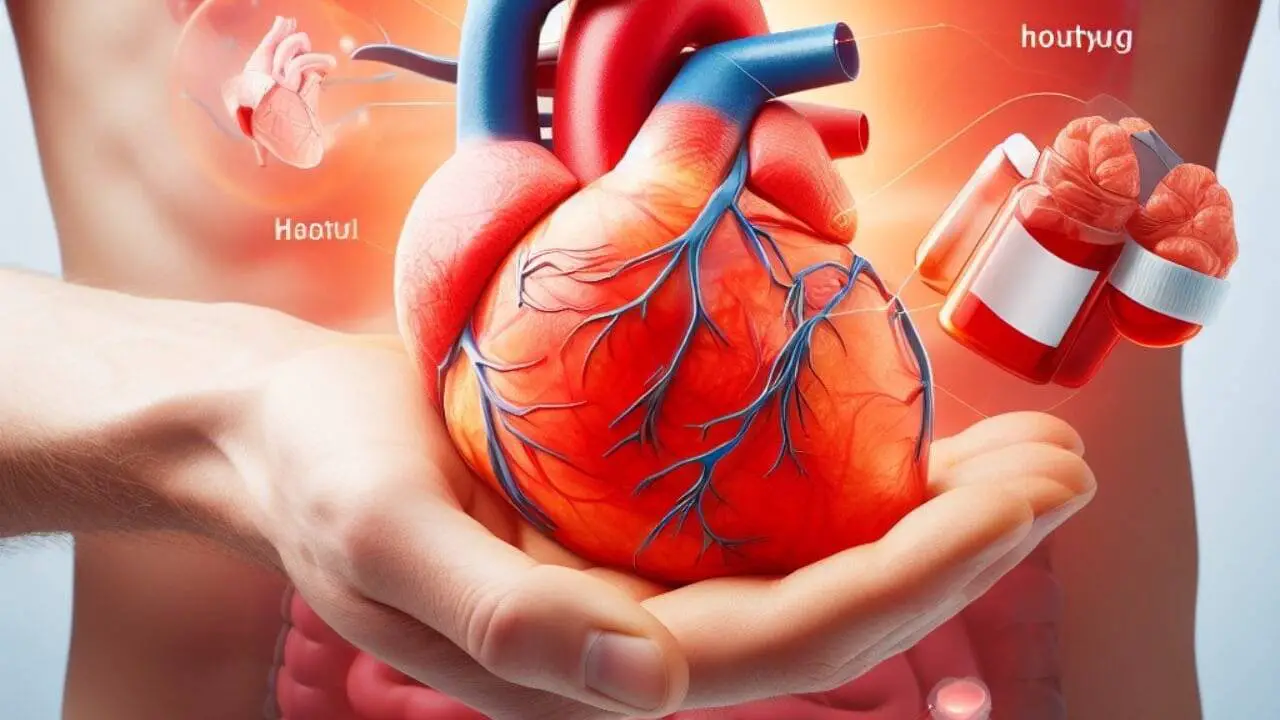
Are you experiencing that uncomfortable burning sensation in your chest? While heartburn is often attributed to diet and lifestyle choices, there may be a deeper, more spiritual meaning behind it. In this article, we dive into the spiritual significance of heartburn and explore what your body could be trying to tell you.
Heartburn is a physical manifestation of emotional and energetic imbalances within the body. According to spiritual beliefs, the heart chakra is the centre of love, compassion, and forgiveness. When this chakra is blocked or out of balance, it can lead to physical symptoms such as heartburn.

By understanding the spiritual meaning behind heartburn, we can begin to uncover the underlying emotional and energetic issues that may be contributing to our discomfort. This article will guide you through various spiritual perspectives and practices to help you address these imbalances and find relief.
Whether you believe in the power of chakras, energy fields, or simply want to explore a different approach to healing, understanding the spiritual meaning behind heartburn can provide valuable insights into your overall well-being. So, let’s embark on this journey of self-discovery and uncover what your body is trying to tell you through heartburn.
Also read This… Biblical And Spiritual Meaning Of Spotting A Praying Mantis
Understanding the mind-body connection
The mind-body connection is a powerful force that influences our overall well-being. It is the understanding that our thoughts, emotions, and beliefs can impact our physical health. When it comes to heartburn, this connection becomes even more apparent.
Research has shown that stress, anxiety, and negative emotions can contribute to the development and severity of heartburn symptoms. The mind-body connection suggests that these emotional states can disrupt the balance of energy within our bodies, leading to physical manifestations such as heartburn.
To address heartburn from a spiritual perspective, it is essential to explore the emotional and energetic imbalances that may be present. This involves delving into our thoughts, beliefs, and past experiences to identify any unresolved issues that may be contributing to our heartburn symptoms.
The chakra system and heartburn
In spiritual practices, the chakra system is often used as a framework for understanding the energetic body. The chakras are energy centres located throughout the body, each associated with specific qualities and emotions. The heart chakra, in particular, is linked to love, compassion, and forgiveness.
When the heart chakra is blocked or out of balance, it can manifest as physical symptoms, including heartburn. This suggests that unresolved emotional issues related to love, compassion, and forgiveness may be contributing to our heartburn symptoms.
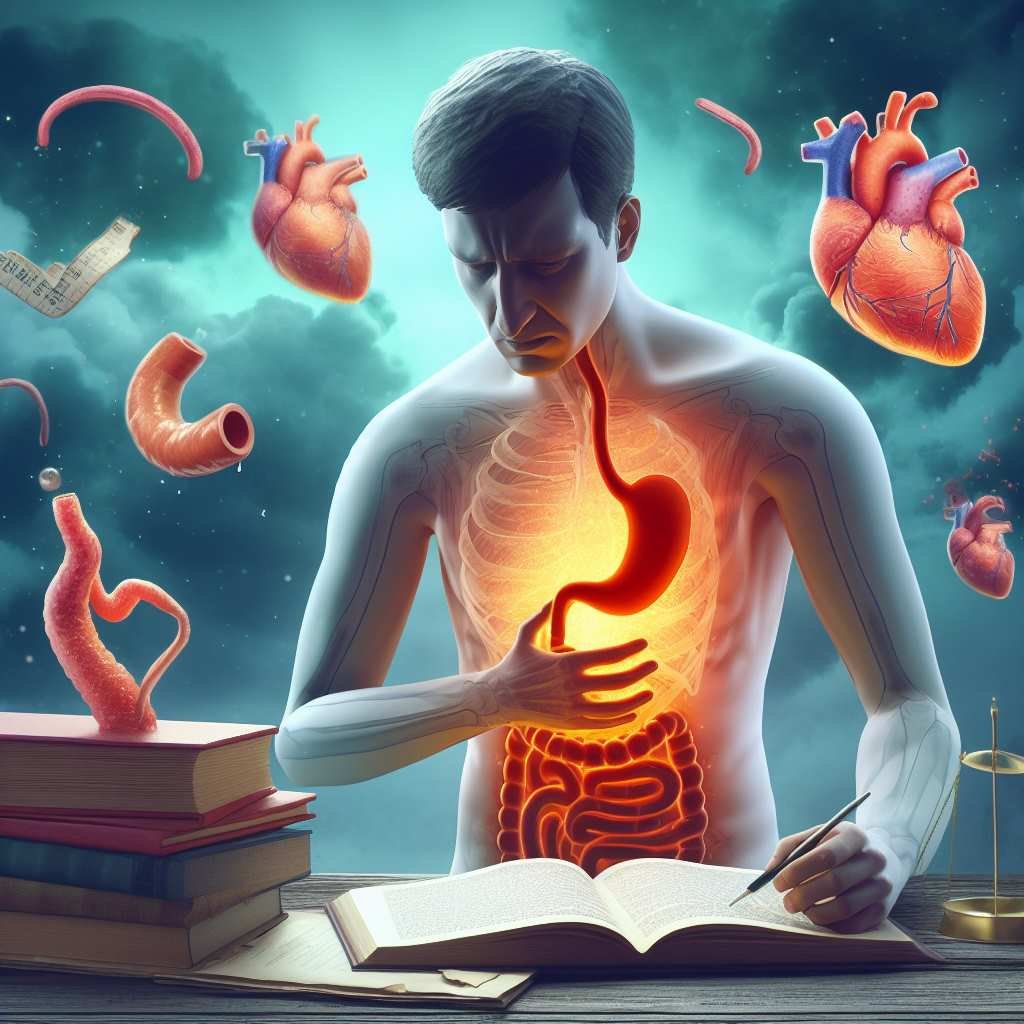
To address heartburn from a spiritual perspective, it is essential to focus on opening and balancing the heart chakra. This can be done through various practices such as meditation, energy healing, and working with affirmations and visualizations.
Emotional and energetic causes of heartburn
Heartburn can be caused by a variety of emotional and energetic factors. These factors can vary from person to person, but some common causes include:
1. Unresolved Emotions: Suppressed or unexpressed emotions such as anger, resentment, or grief can create energetic blockages that manifest as heartburn.
2. Lack of Self-Love: When we don’t fully love and accept ourselves, it can create imbalances within the heart chakra, leading to heartburn.
3. Stress and Anxiety: High levels of stress and anxiety can disrupt the flow of energy within the body, contributing to heartburn symptoms.
4. Lack of Boundaries: Not setting healthy boundaries can lead to energetic imbalances, affecting the heart chakra and causing heartburn.
Understanding the emotional and energetic causes of heartburn is a crucial step in addressing and finding relief from this discomfort.
How to interpret the spiritual messages behind heartburn
Heartburn can be seen as a message from our body, attempting to communicate something to us at a deeper level. By interpreting the spiritual messages behind heartburn, we can gain valuable insights into the underlying issues that may be contributing to our symptoms.
To interpret these messages, it is important to tune into our intuition and listen to what our body is trying to tell us. Journaling, meditation, and self-reflection can be powerful tools in uncovering the spiritual messages behind heartburn.

For example, if heartburn tends to occur during moments of high stress or conflict, it may be a sign that we need to find healthier ways to manage stress and resolve conflicts. If heartburn is more prevalent when we neglect our own needs and desires, it may be a reminder to prioritize self-care and self-love.
By interpreting the spiritual messages behind heartburn, we can gain a deeper understanding of ourselves and make positive changes to support our overall well-being.
Healing practices for heartburn
Addressing heartburn from a spiritual perspective involves a holistic approach that integrates various healing practices. Here are some practices that can help alleviate heartburn symptoms and promote balance in the heart chakra:
- Meditation: Practicing meditation can calm the mind, reduce stress, and promote emotional well-being. By focusing on the heart chakra during meditation, we can encourage its balance and healing.
- Energy Healing: Modalities such as Reiki, acupuncture, or crystal healing can help remove energetic blockages and restore balance to the heart chakra.
- Affirmations and Visualizations: Using affirmations and visualizations focused on love, compassion, and forgiveness can help reprogram subconscious beliefs and support the healing of the heart chakra.
- Journaling and Self-Reflection: Writing in a journal can help uncover and process emotions, providing insights into the underlying causes of heartburn and facilitating emotional healing.
- Herbal Remedies: Certain herbs such as chamomile, ginger, and licoricey root can help soothe the digestive system and alleviate heartburn symptoms.
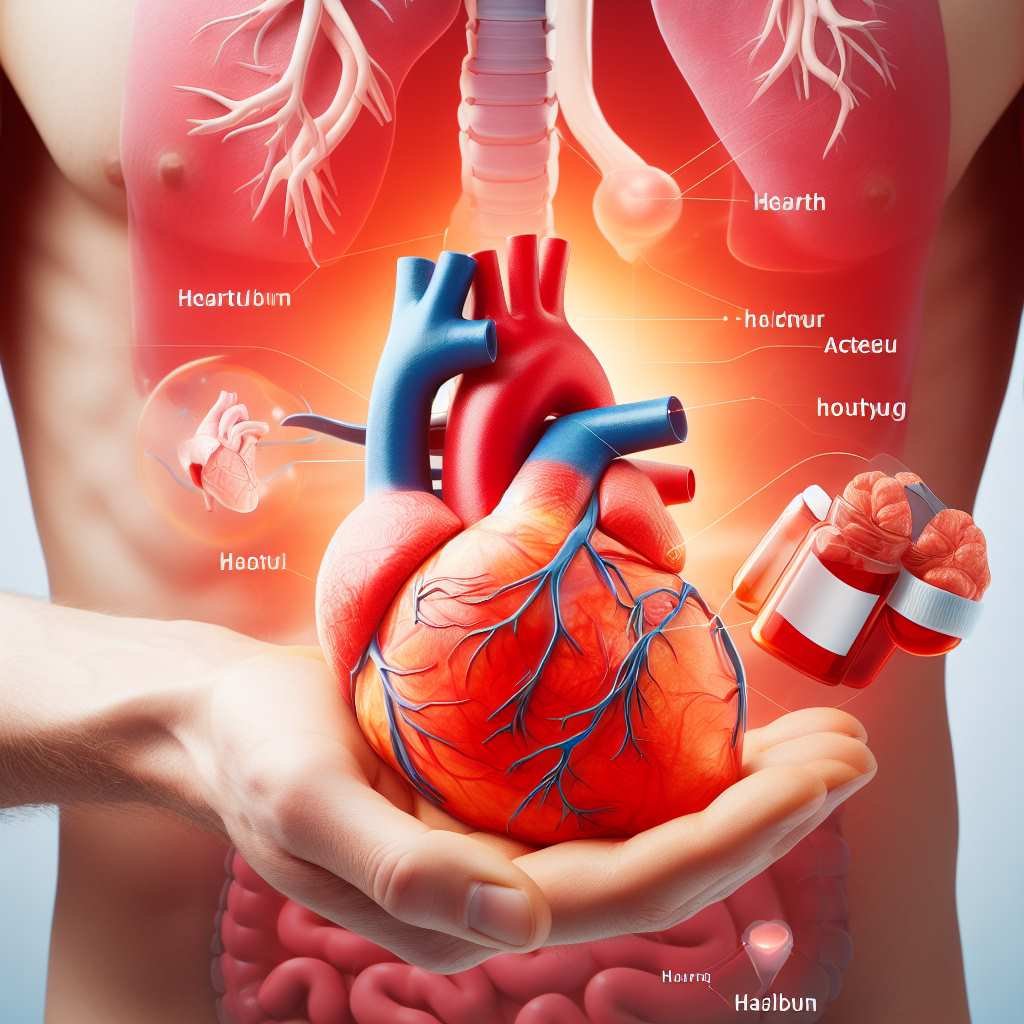
Incorporating these healing practices into our daily lives can support the healing of the heart chakra and provide relief from heartburn.
Holistic approaches to preventing heartburn
Preventing heartburn involves addressing not only the physical factors but also the emotional and energetic imbalances that may contribute to its development. Here are some holistic approaches to preventing heartburn:
- Diet and Lifestyle: Adopting a healthy diet and lifestyle can help reduce the risk of heartburn. This includes avoiding trigger foods, eating smaller meals, maintaining a healthy weight, and practicing good digestion habits.
- Stress Management: Implementing stress management techniques such as exercise, mindfulness, and relaxation techniques can help reduce stress levels, preventing heartburn.
- Self-Care: Prioritizing self-care activities such as exercise, hobbies, and relaxation can promote overall well-being and reduce the likelihood of heartburn.
- Boundaries and Communication: Establishing healthy boundaries and practicing effective communication can reduce emotional stress and promote a balanced heart chakra.
By taking a holistic approach to preventing heartburn, we can support our overall well-being and maintain a healthy balance within our bodies.
Incorporating mindfulness and meditation in managing heartburn
Mindfulness and meditation can be powerful tools in managing heartburn and promoting overall well-being. By incorporating these practices into our daily lives, we can reduce stress, cultivate self-awareness, and support the healing of the heart chakra.
Practicing mindfulness involves being fully present in the moment and non-judgmentally observing our thoughts, emotions, and bodily sensations. By cultivating mindfulness, we can become more attuned to the signals our body is sending us, including the messages behind heartburn.
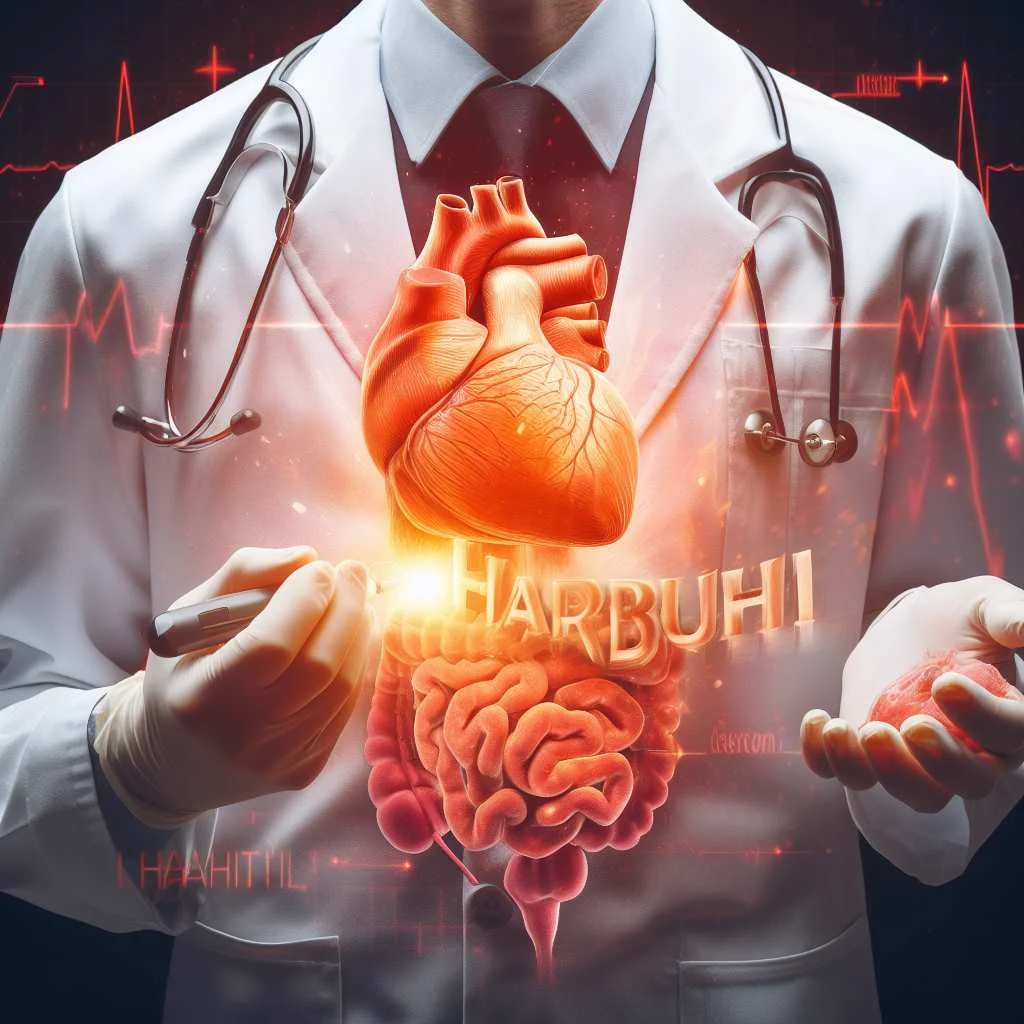
Meditation, on the other hand, involves intentionally focusing our attention and quieting the mind. By dedicating time to meditation, we can calm the mind, reduce stress, and promote emotional well-being. Focusing on the heart chakra during meditation can further support its healing and balance.
Incorporating mindfulness and meditation into our daily routines can help us manage heartburn and foster a deeper connection with our spiritual selves.
Seeking professional guidance for spiritual healing
While self-guided practices can be beneficial, seeking professional guidance for spiritual healing can provide additional support and insights. Spiritual healers, energy workers, and holistic practitioners can offer personalized guidance and techniques to address the specific emotional and energetic imbalances contributing to heartburn.
Working with a professional can provide a safe space for exploration and healing. They can help us uncover and release deep-seated emotional patterns and provide tools and practices to support our healing journey.
If heartburn persists or is causing significant discomfort, it is important to consult with a healthcare professional to rule out any underlying medical conditions.
Conclusion and final thoughts
Understanding the spiritual meaning behind heartburn can offer valuable insights into our emotional and energetic well-being. By exploring the mind-body connection, the chakra system, and the emotional and energetic causes of heartburn, we can begin to address the underlying imbalances that may be contributing to our symptoms.
Incorporating healing practices, preventing heartburn holistically, and incorporating mindfulness and meditation into our lives can support the healing of the heart chakra and alleviate heartburn symptoms.
Remember, each person’s journey is unique, and it is essential to listen to our own intuition and seek the guidance that resonates with us. By embracing a holistic approach to healing, we can find relief from heartburn and cultivate greater overall well-being.
So, let’s embark on this journey of self-discovery and uncover what your body is trying to tell you through heartburn. Listen to the messages, explore the spiritual significance, and embrace the healing practices that resonate with your soul. Your heart and body will thank you.
—
FAQs about Heartburn:
1. What is the cause of heartburn in emotions?
Emotional stress and anxiety can be significant contributors to heartburn. When we experience stress, our body releases hormones that can lead to changes in digestion, including an increase in stomach acid production. This excess acid can then flow back into the oesophagus, causing the discomfort known as heartburn. Managing emotional well-being through techniques like mindfulness, deep breathing exercises, or engaging in relaxing activities can help mitigate the impact of stress on digestive health, reducing the likelihood of heartburn.
2. What is heartburn telling you?
Heartburn often signals an imbalance in your digestive system. It may indicate that your body is producing too much stomach acid, or that the lower oesophageal sphincter, a valve separating the stomach and oesophagus, is not functioning properly. Understanding the root cause can help manage and alleviate heartburn symptoms. Keeping a food diary to identify triggers, adopting a more balanced diet, and maintaining a healthy lifestyle are key steps in deciphering what your heartburn is communicating about your overall digestive health.
3. What is the meaning of heartburns?
Heartburn is a common term for the discomfort or burning sensation felt in the chest, usually behind the breastbone. It occurs when stomach acid backs up into the tube that carries food from your mouth to your stomach (oesophagus). The sensation is often described as a burning feeling, hence the term “heartburn.” While occasional heartburn is normal, persistent or severe symptoms may signify underlying issues such as GERD, and seeking medical advice is crucial for proper diagnosis and treatment.
4. Why do I suddenly have heartburn?
Sudden onset of heartburn can be triggered by various factors, including spicy or fatty foods, large meals, or emotional stress. Lifestyle changes, such as maintaining a healthy diet and managing stress, can often help prevent sudden episodes of heartburn. Additionally, eating smaller, more frequent meals, avoiding lying down immediately after eating, and identifying and avoiding specific food triggers can contribute to preventing the abrupt onset of heartburn.
5. Can heartburn be emotional?
Yes, emotional factors like stress and anxiety can contribute to heartburn. Emotional stress activates the body’s “fight or flight” response, leading to increased stomach acid production and a higher likelihood of experiencing heartburn. Techniques such as cognitive-behavioural therapy (CBT) or meditation can be effective in managing emotional stress and, consequently, reducing the frequency and intensity of heartburn episodes.
6. What is the connection between anxiety and heartburn?
Anxiety and stress can contribute to heartburn by prompting the release of stress hormones that affect digestive processes. Additionally, anxious behaviours, such as overeating or consuming comfort foods that may trigger heartburn, can further exacerbate the connection between anxiety and this digestive discomfort. Managing anxiety through therapy, relaxation techniques, and regular exercise can be beneficial in reducing both emotional stress and the incidence of heartburn.
7. Does drinking water help heartburn?
Drinking water can help alleviate heartburn by diluting stomach acid and washing it back into the stomach. However, it’s essential to avoid excessive water intake during meals, as this can potentially worsen heartburn symptoms by diluting digestive enzymes. Optimal hydration throughout the day, independent of meals, supports overall digestive health and may contribute to reducing the frequency of heartburn.
8. What foods neutralize stomach acid immediately?
Certain foods can help neutralize stomach acid, including bananas, melons, and oatmeal. Consuming these items in moderation may provide relief from heartburn symptoms by balancing acidity levels in the stomach. Additionally, incorporating alkaline-rich foods such as leafy greens, almonds, and ginger into your diet can contribute to maintaining a more alkaline environment in the stomach, potentially reducing the likelihood of excess acid causing heartburn.
9. Is heartburn from your heart or your stomach?
Despite its name, heartburn does not originate from the heart. It is a digestive issue caused by stomach acid flowing back into the oesophagus. The discomfort is felt in the chest, resembling heart pain, leading to the term “heartburn.” It’s important to differentiate between heartburn and heart-related issues, as the symptoms of each can vary significantly. If there is uncertainty, seeking medical advice is crucial to rule out any serious cardiac concerns.
10. What can I drink to relieve heartburn?
Ginger tea, chamomile tea, and Aloe Vera juice are beverages that may help relieve heartburn symptoms. These drinks possess properties that can soothe the digestive tract and reduce inflammation, providing relief from discomfort. It’s advisable to avoid acidic beverages like citrus juices and carbonated drinks, as they can exacerbate heartburn symptoms. Experimenting with different soothing drinks and observing personal responses can aid in identifying effective relief options.
11. Why won’t my heartburn go away?
Persistent heartburn may be a sign of an underlying issue, such as gastroesophageal reflux disease (GERD). If lifestyle changes and over-the-counter medications do not bring relief, it is advisable to consult a healthcare professional for a thorough evaluation and appropriate treatment. Further diagnostic tests, such as endoscopy or pH monitoring, may be recommended to determine the cause of persistent heartburn and tailor a targeted treatment plan.
12. What hormone causes heartburn?
The hormone responsible for stimulating the production of stomach acid is gastrin. Stress hormones, such as cortisol, can also contribute to increased stomach acid production, potentially leading to heartburn. Balancing hormonal levels through stress management techniques, regular exercise, and a healthy lifestyle can play a role in minimizing hormonal influences on heartburn.
13. What causes heartburn in women?
Women may experience heartburn due to factors like hormonal changes during pregnancy, which can affect the function of the lower oesophageal sphincter. Additionally, lifestyle factors such as diet, stress, and obesity can contribute to heartburn in women. During pregnancy, adopting dietary modifications, maintaining an upright posture after meals, and consulting with a healthcare provider for safe symptom management are essential steps for addressing heartburn.
14. Should I be worried if I keep getting heartburn?
Occasional heartburn is common and usually not a cause for concern. However, if you frequently experience heartburn or if it persists despite lifestyle changes, it’s advisable to consult with a healthcare professional to rule out underlying conditions like GERD. Persistent heartburn may lead to complications such as esophagitis or Barrett’s oesophagus, making early diagnosis and management crucial for long-term digestive health.
15. What emotions are related to indigestion?
Indigestion can be linked to various emotions, including stress, anxiety, and frustration. Emotional distress can affect digestion, leading to symptoms such as bloating, gas, and discomfort in the upper abdomen. Practicing stress-reducing techniques, mindfulness, and addressing emotional well-being through therapy or counselling can positively impact both emotional health and digestive comfort.
16. Is heartburn a side effect of depression?
While depression itself may not directly cause heartburn, the associated symptoms like changes in appetite and eating habits can contribute to digestive issues. Additionally, some medications used to treat depression may have side effects that impact the digestive system. It’s crucial for individuals with depression to communicate openly with their healthcare providers about any digestive symptoms, as adjustments to medication or additional interventions may be necessary for holistic care.
17. Can emotional stress cause acid reflux?
Yes, emotional
stress can trigger or exacerbate acid reflux. Stress hormones can lead to increased stomach acid production and may weaken the lower oesophageal sphincter, allowing stomach contents to flow back into the oesophagus. Managing emotional stress through relaxation techniques, regular exercise, and seeking support from mental health professionals can contribute to a reduction in both emotional distress and acid reflux symptoms.
18. Why have I had heartburn for 2 days straight?
Persistent heartburn for an extended period may indicate a more serious underlying condition such as GERD. It’s advisable to seek medical attention if symptoms persist, as a healthcare professional can provide a proper diagnosis and recommend appropriate treatment. Lifestyle modifications, dietary changes, and medications may be recommended based on the specific underlying cause of prolonged heartburn.
19. What alcohol is good for acid reflux?
In moderation, certain alcohols like white wine or light beer may be better tolerated by individuals prone to acid reflux. However, it’s crucial to be mindful of personal triggers and avoid excessive alcohol consumption, as alcohol can relax the lower oesophageal sphincter and contribute to heartburn. Monitoring individual responses to different types of alcohol and choosing lower-acid options can help minimize the likelihood of alcohol-induced heartburn.
20. What is the difference between heartburn and acid reflux?
Heartburn is a symptom of acid reflux. Acid reflux occurs when stomach acid flows back into the oesophagus, leading to a burning sensation in the chest, which is referred to as heartburn. While acid reflux is the underlying condition, heartburn is the discomfort or pain experienced as a result. Lifestyle changes, dietary adjustments, and over-the-counter medications can often effectively manage both acid reflux and the associated heartburn symptoms. Persistent or severe cases may require further medical evaluation and personalized treatment plans.






